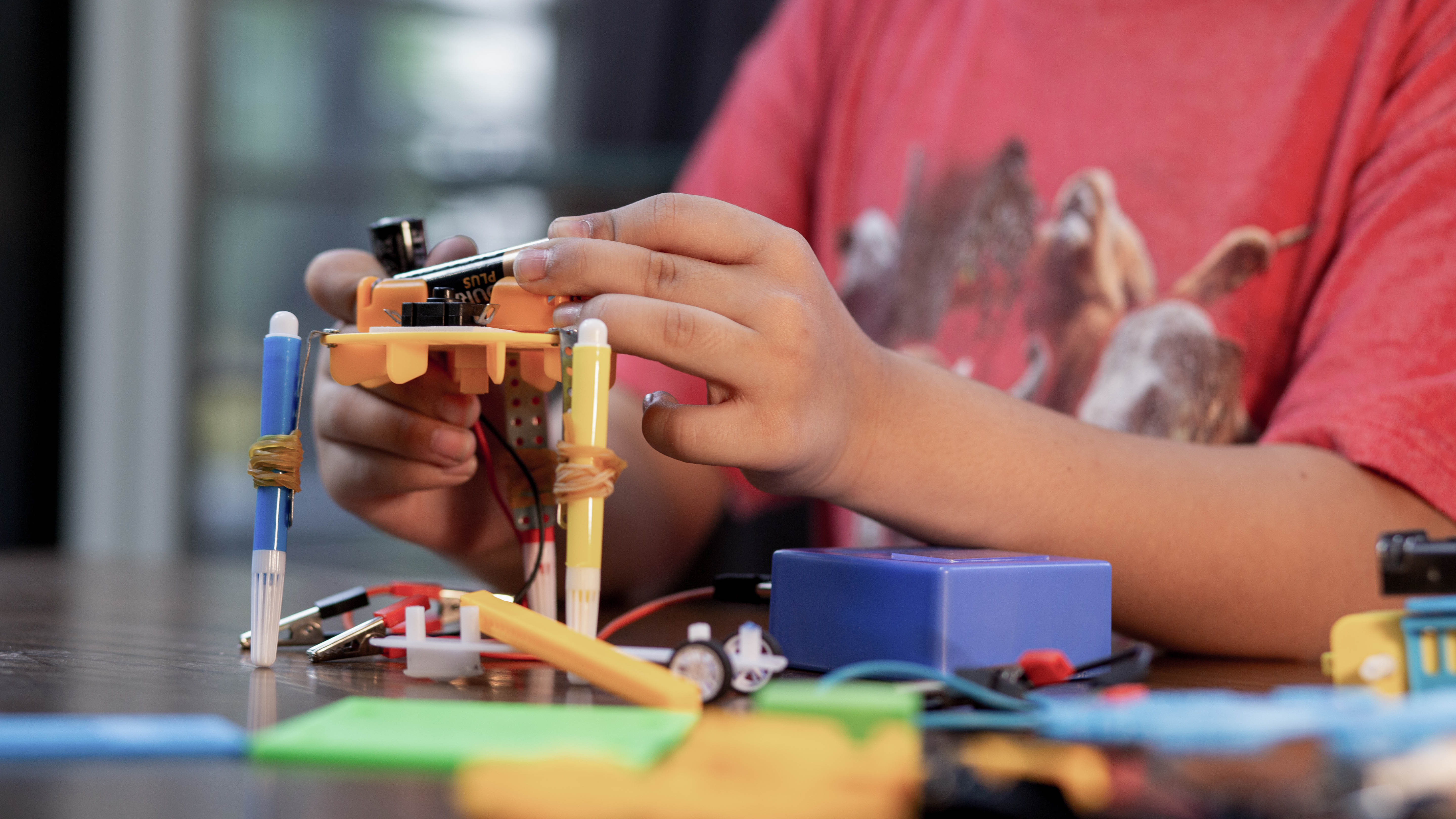STEM Education Initiatives
Background
Science, Technology, Engineering, and Mathematics (STEM) are critical fields that drive modern economies, technological advancements, and sustainable development worldwide. In Bangladesh, however, STEM disciplines are still underemphasized in the mainstream curriculum, especially in public schools and rural areas. As the world moves toward a knowledge-based economy, this gap risks leaving the country's workforce unprepared for future challenges. Enhancing STEM education from the foundational level can bridge this gap, ensuring that Bangladeshi students are equipped with the necessary skills to thrive in the global landscape.
Rationale
Integrating STEM education early in the academic journey fosters a natural curiosity, encourages experimentation, and builds critical problem-solving skills — all of which are essential for the demands of the 21st century. A STEM-focused approach prepares students for high-demand careers, strengthens national competitiveness, and promotes innovation. Moreover, in a country like Bangladesh, where many young people are entering the workforce every year, a strong STEM foundation can unlock new economic opportunities, support sustainable development, and empower marginalized communities by creating paths to high-skill employment.
Implementation Strategy
1. STEM Labs
- Objective: Provide hands-on learning opportunities that bring theoretical concepts to life.
- Action Plan: Establish affordable, low-cost STEM laboratories in public schools, particularly in underserved and rural areas. The labs would include basic science equipment, robotics kits, coding workstations, and maker-space materials.
- Partnerships: Collaborate with universities, private sector tech companies, and NGOs to sponsor lab equipment and training for teachers.
2. STEM Competitions
- Objective: Inspire creativity, collaboration, and competitive spirit among students.
- Action Plan: Organize annual district-level and national-level STEM competitions, such as science fairs, hackathons, robotics contests, coding marathons, and Mathematics Olympiads.
- Support System: Provide mentorship, resources, and workshops to prepare students for competitions and create pathways for winners to receive scholarships and internships.
3. Mentorship Programs
- Objective: Connect students with role models and experts in STEM fields.
- Action Plan: Create mentorship networks that pair students with local engineers, scientists, university professors, and international experts via online and in-person sessions.
- Additional Components: Host career talks, workshops, virtual lab visits, and STEM-themed webinars to expose students to real-world applications and career pathways.
4. Gender Inclusion
- Objective: Increase female participation in STEM fields where they are historically underrepresented.
- Action Plan:
- Launch scholarships specifically for girls pursuing STEM education.
- Establish girls' STEM clubs and leadership camps.
- Promote female role models in STEM through school talks and media campaigns.
- Provide mentorship programs led by successful women in science, technology, engineering, and mathematics.
Expected Outcomes
- Increased Enrollment: More students, particularly from underprivileged backgrounds, will pursue higher education and careers in science, technology, engineering, and mathematics.
- Innovation and Research Culture: By encouraging experimental thinking and problem-solving skills, the initiative would foster a generation of innovators, researchers, and entrepreneurs.
- Gender Empowerment: A marked increase in female participation in high-skill, high-growth sectors, helping to balance the workforce and drive inclusive economic development.
- Global Competitiveness: A better-prepared and technologically literate workforce, positioning Bangladesh as a hub for innovation and skilled labor in the global market.
- Sustainable Development: Strengthening STEM education will contribute directly to achieving the UN Sustainable Development Goals (SDGs), particularly those related to quality education, gender equality, and economic growth.


